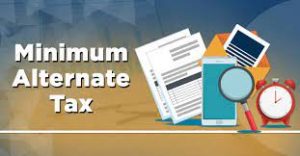Minimum Alternate Tax:

The Income Tax Appellate Tribunal (ITAT) recently observed that the assessee was entitled to claim credit for Minimum Alternate Tax (MAT) under the Vivad se Vishwas (VSV) Scheme.
- Minimum Alternate Tax (MAT) is a provision in the Income Tax Act of India.
- It primarily applies to companies and is designed to ensure that companies that report substantial book profits but pay little to no income tax due to various exemptions and deductions are subject to a minimum level of taxation.
- The primary objective behind the MAT tax in India is to curb tax avoidance by companies that manipulate their financial statements to reduce their taxable income artificially.
- With the introduction of MAT, companies have to pay a fixed percentage of their profits as MAT.
- MAT is applicable to all companies, including foreign companies.
- However, it does not apply to companies that have been granted exemption under Section 10AA of the Income Tax Act, which pertains to Special Economic Zones (SEZs).
- All companies are required to pay corporate tax based on which is higher of the following:
- Tax computed as per the normal provisions of the Income-tax Law, i.e., by applying the relevant tax rate to the taxable income of the company.
- Tax computed at 15% (previously 18.5%) on book profit plus cess and surcharge.
- MAT is calculated on the “book profits” of a company, which is different from the taxable profits computed under the regular provisions of the Income Tax Act.




